
Iranian, South Korean cooperatives explore avenues of mutual co-op
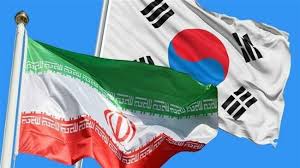
The event was attended by senior officiasl from both sides including Mashallah Azimi, the secretary General of Iran Central Chamber of Cooperatives (ICCC), South Korean Ambassador to Tehran Ryu Jeong-Hyun, and Choi Hee-won, the head of Rural Research team at National Agricultural Cooperative Federation of South Korea, in addition to businessmen and representatives of cooperatives from both sides.
During the event the officials from both sides delivered speeches and briefed the attendees about the capacities and capabilities of the cooperatives in their countries.
Sharing knowledge and experience
Delivering his speech in the opening of the seminar, South Korean Ambassador to Tehran Ryu Jeong-Hyun expressed gratitude to ICCC and the Iranian government for making necessary arrangements for organizing the second Iran-Korea joint cooperatives seminar.
Pointing to the significance of such event, Ryu Jeong-Hyun noted that the South Korean Government is determined to hold this event annually in collaboration with ICCC in order to raise awareness and make the two countries’ cooperatives to get to know each other better and explore potential areas for mutual cooperation.
According to the official, nowadays, cooperatives play a very important role in the economy of the countries all around the world.
“Cooperatives create jobs and provide various services for the society and in this way have a significant role in the economic development of the countries,” he said.
Elsewhere in his remarks he stressed the need for the two countries to share their knowledge and experience in order to expand their cooperation in a variety of fields through cooperatives and small and medium-sized enterprises (SMEs).
“If I am not mistaken, Iran Chamber of Cooperatives currently has about 14 million members and plays a great role in Iran’s economy,” he said adding that Iran is one of the biggest markets in the region and South Korea has a lot of experience in cooperative affairs so the two sides could cooperate in a win-win situation.
“When small and medium-sized enterprises work together through chambers of cooperative, development would be much faster and much easier and they can achieve great outcomes,” he stressed.
He finally expressed hope that the two countries’ governments would support cooperation between their SMEs and chambers of cooperatives so that the exchange of knowledge and experience between the two sides lead to further economic development for both countries.
“I hope that through cooperation and by joining hands, the two countries would create a new chapter in promoting social welfare and social justice in both countries,” he said.
A social movement
In another part of the event, ICCC’s Secretary General Mashallah Azimi delivered his speech, in which he presented a brief history of cooperatives in Iran along with the country’s capacities and capabilities in various areas.
According to Azimi, cooperatives are not just established for pursuing economic benefits, but they are in fact seen as a movement toward promoting social justice and social welfare all around the world.
“One of the very important features of all cooperatives in the world is paying attention to social values in line with the economic aspects of their activities,” he said.
Azimi further highlighted that in the past two decades, cooperatives have engaged in bigger and more important infrastructure projects across the globe.
In Iran such infrastructure projects account for five to eight percent of the country’s total Gross Domestic Product (GDP), he added.
The official elsewhere noted that the Iranian government is paying more and more attention to cooperatives in recent years, because of their growing significant role in the country’s economic structure.
Azimi further mentioned Iranian Leader’s recent remarks in a meeting with the country’s businessmen and entrepreneurs, saying “As the Leader mentioned, cooperatives create new job opportunities and attract new investments and when joined together they could create a powerful force for development of the country.”
Elsewhere in his remarks, the official stressed the need for expansion of cooperation between the two countries’ SMEs in the sanctions era, calling on the South Korean government for facilitating transfer of knowledge and experience to Iran through cooperation between SMEs.
He finally mentioned Iran’s plans for further expansion of the role of cooperatives in the country’s economy, saying “According to the Sixth Five-Year National Development Plan (2016-2021), the share of cooperatives in Iran’s GDP is set to increase to 25 percent from the current six percent and we hope to achieve this goal in a constructive cooperation with our reliable trade partners such as South Korea.”
Yet in another part of the event, Choi Hee-won, the head of Rural Research team at National Agricultural Cooperative Federation of South Korea, presented the history about establishment of cooperatives in his country and explained some of South Korea’s regulations, laws and acts regarding the cooperatives and also the government’s support system for them.
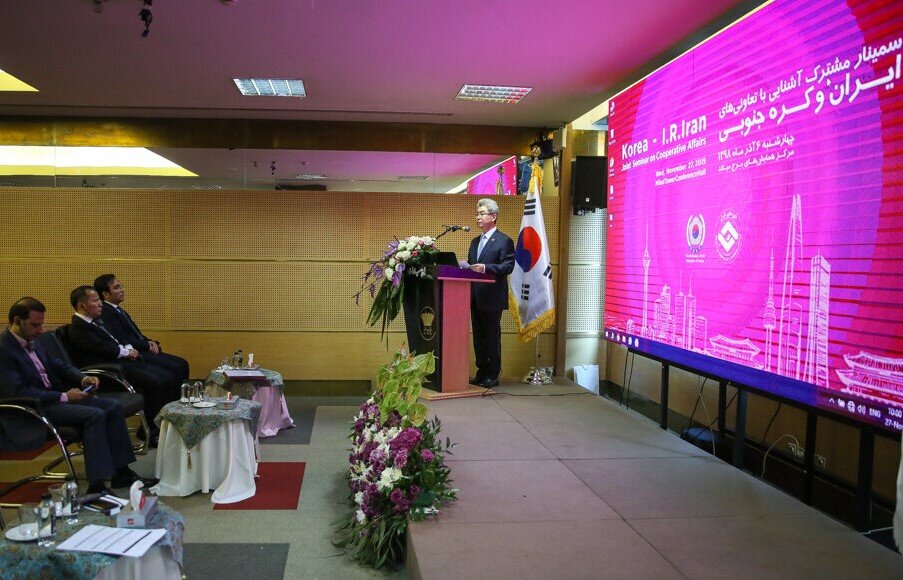


Alba Discloses its Financial Results for the Second Quarter and H1 of 2025

US slaps tariffs on 1-kg, 100-oz gold bars: Financial Times

Copper price slips as unwinding of tariff trade boosts LME stockpiles

Codelco seeks restart at Chilean copper mine after collapse

Uzbek gold miner said to eye $20 billion value in dual listing

NextSource soars on Mitsubishi Chemical offtake deal

Hudbay snags $600M investment for Arizona copper project

BHP, Vale offer $1.4 billion settlement in UK lawsuit over Brazil dam disaster, FT reports

Australia weighs price floor for critical minerals, boosting rare earth miners
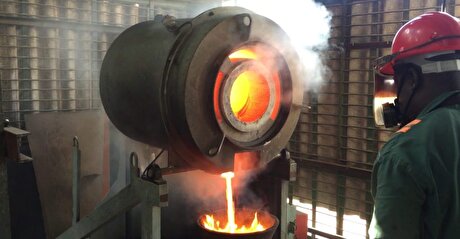
Zimbabwe labs overwhelmed as gold rally spurs exploration, miner says

Cochilco maintains copper price forecast for 2025 and 2026
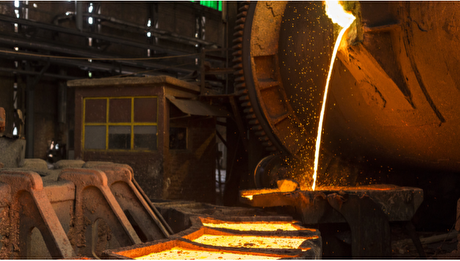
Adani’s new copper smelter in India applies to become LME-listed brand

HSBC sees silver benefiting from gold strength, lifts forecast

Mosaic to sell Brazil potash mine in $27M deal amid tariff and demand pressures

Samarco gets court approval to exit bankruptcy proceedings

Hudbay snags $600M investment for Arizona copper project

Discovery Silver hits new high on first quarterly results as producer
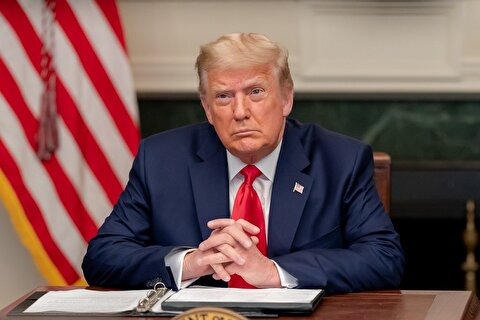
Trump says gold imports won’t be tariffed in reprieve for market

AI data centers to worsen copper shortage – BNEF

Cochilco maintains copper price forecast for 2025 and 2026

Adani’s new copper smelter in India applies to become LME-listed brand

HSBC sees silver benefiting from gold strength, lifts forecast

Mosaic to sell Brazil potash mine in $27M deal amid tariff and demand pressures

Samarco gets court approval to exit bankruptcy proceedings

Hudbay snags $600M investment for Arizona copper project

Discovery Silver hits new high on first quarterly results as producer

Trump says gold imports won’t be tariffed in reprieve for market

AI data centers to worsen copper shortage – BNEF














